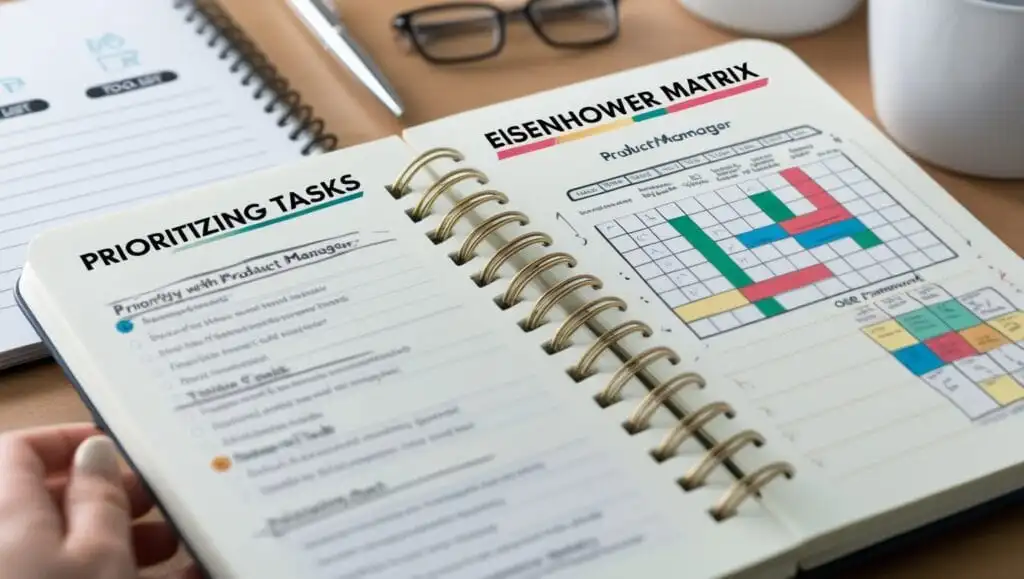- January 16, 2025
- by uyuwh
- Blog
- 0 Comments
In the dynamic world of product management, where deadlines are tight, expectations are high, and decisions are critical, stress is almost inevitable. However, for those in leadership positions, like Yathu Karunailingam, managing stress is not just about surviving—it’s about thriving. As a seasoned expert in product management, Yathu has worked with leading global companies such as Google, Amazon, and Microsoft, and has learned valuable strategies for managing stress while staying at the top of his game.
In this article, we’ll dive into Yathu’s approach to managing stress in the high-pressure world of product management. From building resilience to integrating mindful practices, Yathu’s tips offer a comprehensive guide for anyone looking to balance the demands of their role while maintaining personal well-being.
Table of Contents
Understanding Stress in Product Management
Before we explore Yathu Karunailingam’s stress management techniques, it’s important to first understand the nature of stress in product management. As a product manager, you’re required to juggle numerous tasks, such as overseeing product development, coordinating teams, aligning with stakeholders, and adapting to market changes. Each of these responsibilities can bring its own set of pressures.
However, stress becomes problematic when it begins to affect decision-making, relationships, and productivity. It can lead to burnout, decreased performance, and even health issues if left unchecked. As product managers are key to driving innovation and guiding their teams, maintaining a clear mind and balanced approach is essential. This is where Yathu’s strategies come into play.
Yathu Karunailingam’s Approach to Managing Stress
Yathu’s approach to stress management is rooted in mindfulness, structured time management, and building a supportive, transparent work environment. His strategies are designed to help product managers not only manage stress but also turn stress into a source of motivation and growth.
1. Set Clear Priorities and Goals
The first tip Yathu emphasizes is the importance of setting clear priorities and goals. Product management involves numerous tasks and competing deadlines. Without clarity, it’s easy to feel overwhelmed and stressed out.
Yathu advocates for using frameworks like the Eisenhower Matrix or OKRs (Objectives and Key Results) to prioritize work. The Eisenhower Matrix helps you categorize tasks based on urgency and importance, allowing you to focus on high-priority tasks and delegate or defer less critical activities. By setting specific, measurable goals, Yathu ensures that both his team and himself can work with purpose and clarity.
How this helps with stress: When you know what matters most and can focus on one task at a time, the sense of overwhelm diminishes. You can avoid feeling pulled in multiple directions and can stay in control of your workload.
2. Delegate and Trust Your Team
One of the biggest stressors in product management is trying to do everything yourself. While product managers are responsible for leading their teams and guiding product strategies, it’s important to remember that success is a collective effort. Yathu advocates for effective delegation as a critical part of stress management.
By empowering his team members and trusting them with responsibilities, Yathu Karunailingam ensures that no one person bears the entire load. This allows him to focus on higher-level strategic decision-making while his team handles the tactical execution.
How this helps with stress: Delegating tasks reduces the pressure on a single individual and builds a stronger, more collaborative team environment. When you trust your team and empower them to take ownership, the burden on you is significantly reduced, and the stress of micromanagement is alleviated.
3. Practice Mindfulness and Meditation
Mindfulness is at the core of Yathu Karunailingam’s approach to managing stress. Product management is mentally taxing, and constant pressure can cloud your judgment and lead to burnout. To combat this, Yathu integrates daily mindfulness practices into his routine, including meditation and deep-breathing exercises.
Mindfulness allows him to stay present in the moment, improving his focus and decision-making. By taking time out to meditate or simply breathe deeply, Yathu helps calm his nervous system and reduce stress. Meditation also encourages emotional resilience, which is essential when managing high-stakes projects.
How this helps with stress: Mindfulness exercises can lower cortisol levels (the stress hormone), increase self-awareness, and foster emotional balance. As a result, you’ll experience less stress and greater clarity, both of which are essential for making sound decisions in high-pressure situations.
4. Embrace Work-Life Balance
A healthy work-life balance is critical for long-term success, and this is a concept Yathu holds dear. It’s easy to become consumed by work in a role as demanding as product management, but Yathu has learned that stepping away from work is just as important as being focused during working hours.
Yathu prioritizes downtime and relaxation by engaging in activities that recharge his energy. Whether it’s spending time with family, reading, or participating in outdoor activities, Yathu ensures that he disconnects from work regularly.
How this helps with stress: When you achieve a balance between your personal and professional life, you reduce the risk of burnout and can return to work feeling rejuvenated. Regular breaks, vacations, and downtime allow you to reset your mind, so you approach your tasks with fresh perspectives and renewed energy.

5. Learn to Say No
One of the hardest lessons for product managers to learn is how to say no. Whether it’s taking on too many projects or overcommitting to meetings, it’s easy to become stretched thin. Yathu emphasizes that knowing your limits and being comfortable saying no is a key part of managing stress.
By setting clear boundaries and communicating them effectively with colleagues and stakeholders, Yathu ensures that he only takes on the tasks that align with his priorities and goals. This not only helps reduce unnecessary stress but also allows him to maintain a higher level of productivity and focus.
How this helps with stress: Saying no prevents you from becoming overwhelmed with excessive work. It’s a crucial skill for maintaining focus and ensuring you don’t take on more than you can handle, leading to a more manageable workload and lower stress levels.
6. Leverage AI Tools for Efficiency
As a leader in AI-driven solutions, Yathu advocates for using technology to enhance productivity and reduce stress. AI tools can help product managers automate routine tasks, gather market insights, and predict product trends. By incorporating AI into the workflow, Yathu is able to optimize the product development process and minimize the stress of manual work.
AI tools also provide actionable data that empowers decision-making, ensuring that product managers don’t have to second-guess their choices. By streamlining processes, AI allows teams to be more efficient, enabling product managers to focus on the creative and strategic aspects of their role.
How this helps with stress: Automation of repetitive tasks reduces cognitive load and allows product managers to focus on more meaningful work. With fewer administrative tasks to manage, stress is significantly reduced, and the time saved can be used for innovation and strategic thinking.
7. Maintain Open Communication with Stakeholders
Effective communication is a cornerstone of stress management in product management. By maintaining open, transparent communication with stakeholders—whether they’re team members, clients, or executives—Yathu ensures that expectations are clear and achievable. He regularly checks in with his stakeholders to provide updates, address concerns, and manage potential roadblocks before they escalate into stress-inducing crises.
How this helps with stress: When you communicate proactively and clearly with stakeholders, misunderstandings are minimized, and expectations are aligned. This reduces the likelihood of last-minute surprises or added pressure, which can often lead to stress.
8. Invest in Personal Growth and Reflection
Yathu is a strong believer in the importance of self-reflection and continuous personal growth. Whether it’s reading books, attending conferences, or seeking mentorship, Yathu makes time for activities that foster both professional and personal development. Reflecting on past projects, understanding what worked and what didn’t, and being open to feedback all contribute to reducing stress and improving future performance.
How this helps with stress: Self-reflection provides clarity and helps you learn from experiences. By continuously improving and gaining new perspectives, you feel more competent in handling challenges, which ultimately reduces stress.
Conclusion: Achieving Balance and Success
Stress is an inevitable part of product management, but it doesn’t have to dictate your life. By following Yathu Karunailingam’s strategies for managing stress, product managers can learn to work smarter, not harder, while maintaining personal well-being. Prioritizing mental health, practicing mindfulness, fostering work-life balance, and embracing delegation are just a few of the key principles that can help you navigate the complexities of product management with confidence.
By making these practices a part of your daily routine, you’ll find that managing stress is not only possible but essential for achieving long-term success and fulfillment in your career.





